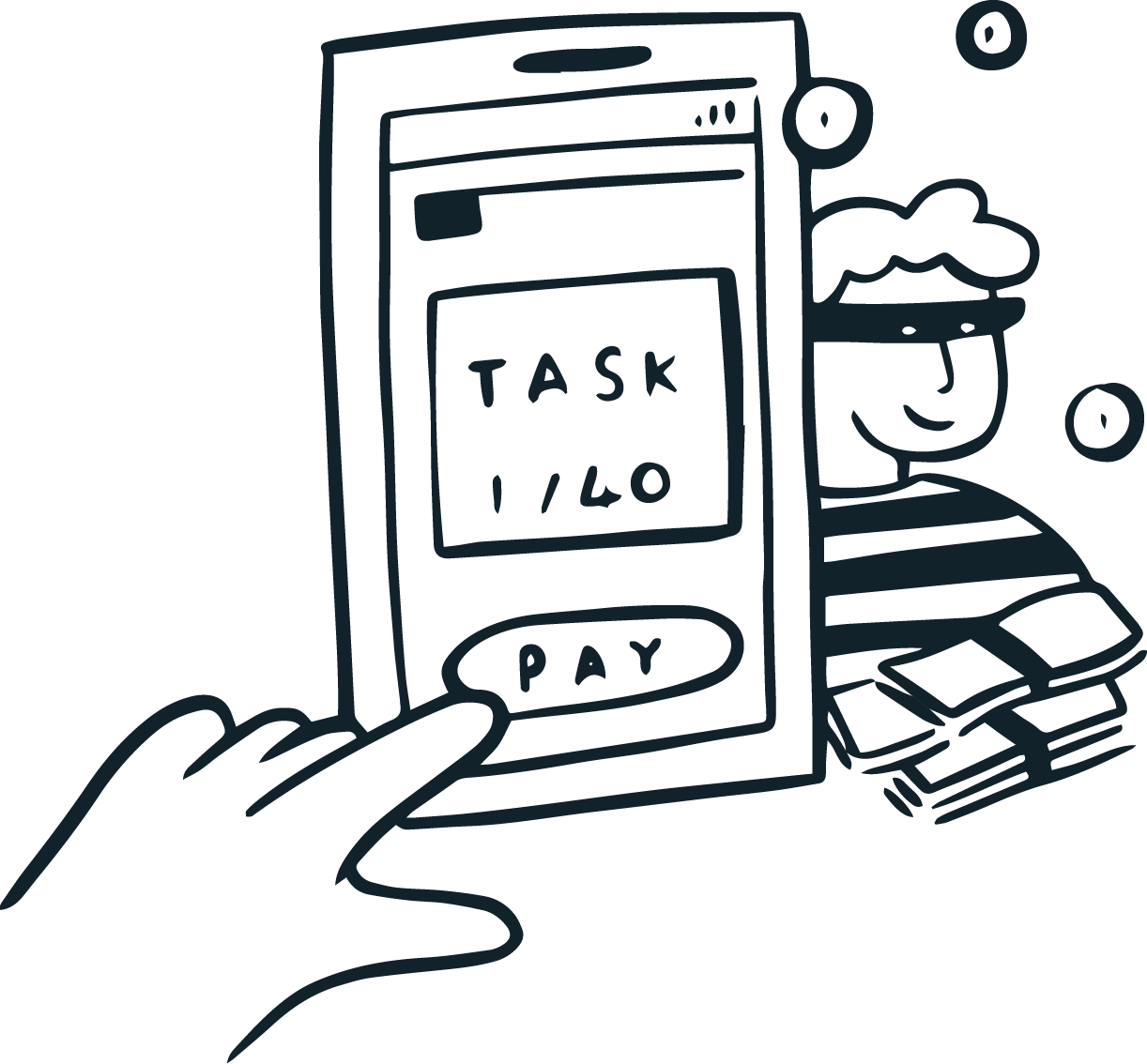Job/Task Scams
What are they?
Job or ‘Task’ Scams are becoming more commonplace and Refundee has seen a huge rise in the number of scams we are seeing in this area from the end of 2022 onwards. Unfortunately, scammers seem to be ruthlessly taking advantage of the cost of living crisis and they are targeting people looking to supplement their income.
What is a job or ‘task’ scam?
These scams usually begin with an unsolicited message, most commonly on WhatsApp or Telegram, offering a job opportunity. This is working from home, flexible hours and requires no experience. Some people may have previously filled in applications on spoofs of legitimate job sites so the message is not unexpected.
The scammer will explain that the job role will include completing a set of tasks and you will be able to earn commission on each task. They may also offer a salary per day, which will usually be in cryptocurrency. It is important to say at this point, that cryptocurrency is not currently a regulated currency and the majority of legitimate jobs would not pay their employees this way.
Sometimes the scammers have cloned genuine companies, which means that they may initially show you a website that is in-fact a legitimate company. When you search the company name on Google and TrustPilot, it will all seem positive. However, when it comes to completing the job, they will send you another link to their ‘portal’ which is a fraudulent website with all the branding of the real company. It is really important to check the URL of the links they send, if they are different to the original company website - it is a scam.
As the scam progresses, and you complete the ‘tasks’ the portal will show a fictitious balance increasing with your commission. You will then come across a task that will bring your account into a negative balance. You will be expected to make a deposit, usually in cryptocurrency, to bring the account back into the positive. You will be told by the ‘customer service’ that you will be refunded at the end of the set of tasks.
In some cases, for the first few days the deposits are made, you may receive small returns. The fraudsters do this to gain your trust and ultimately convince you further down the line that you will get your money back.
The tasks become more and more expensive over the coming days, until you are expected to make deposits of thousands of pounds. These ‘premium tasks’ are described by the scammers as ‘lucky’ and that it means you’ll receive more commission.
It will get to a point that being able to pay becomes impossible. The scammers may suggest that you take out loans, use credit cards or borrow from friends to continue depositing money, so that you can finish the set of tasks.
The scammers will maintain there is nothing they can do until the set is completed. They will say that the only way to withdraw your money is to reach the end of the set as it is company policy.
Regardless if you pay to reach the end of the set or not, they will not return your money. They will continue to make excuses, suggesting you need to pay tax and fees for withdrawals until either you cannot afford it or they remove you from any further communication.
A legitimate company would never ask you to make payments as part of your job, especially not in cryptocurrency.
These scams are very sophisticated and the scammers are experienced so it can seem very convincing.
Checks you can do if you are unsure if a company is legitimate
If you are ever unsure whether or not a job offer is genuine, call the number on the back of your bank card and speak to your bank’s fraud team.
If you have lost money to this type of scam, Refundee can help you get your money back from your bank and you can fill in our fraud refund claim form for a free consultation. Check out our fair and simple fees page for more information about how we charge.
Remember you don’t need to use a company like Refundee, you could work your case yourself for free! If you’d like to get a refund yourself, you can do this by following our bank transfer refund guide through the ‘Claim Yourself’ link.

